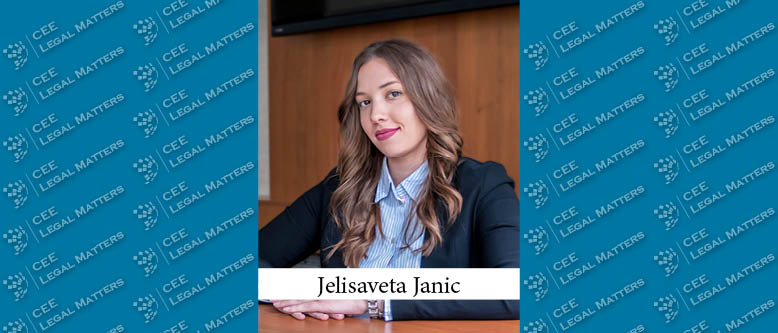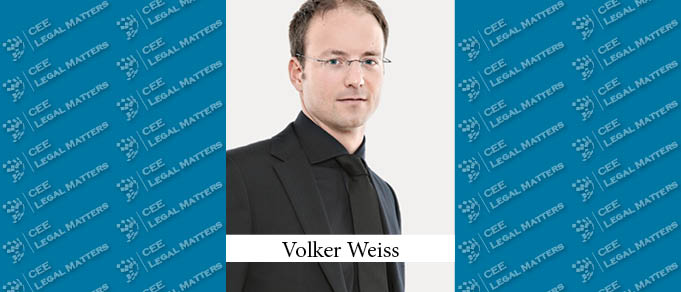Complaints (under Croatian competition law also referred to as “initiatives”), through which different market players may inform the Croatian Competition Agency (CCA) of suspected infringements of competition laws, have been introduced in the Croatian Competition Act back in 2010 and are not a novelty. Complaints have proved to be a useful tool that brought certain competition law violations to the attention of the CCA and helped detect and correct discrepancies in the market.
Kosovo: Kosovo Lowers the Threshold for Concentration Filings
On May 13, 2022, the Assembly of Kosovo passed Law No. 08/L-056 on Protection of Competition, replacing the previous law that had been in effect since October 2010. The new law aims to align the legal framework with EU rules and enhance the efficiency of the Kosovo Competition Authority (KCA). In the context of mergers, acquisitions, and other forms of concentration, the KCA aims to scrutinize concentration filings to assess potential threats to competition in the Kosovo market.
Slovakia: Conditional Merger Clearances in Slovakia – Change of Trend or Anomaly
Despite the quite long-lasting existence of a legislative framework for conditional merger clearances and imposing remedies on undertakings, the Antimonopoly Office of the Slovak Republic (Slovak NCA) has not used this option for many years. We are, however, experiencing a change in the practice of the Slovak NCA. Are we experiencing a change of trend in conditional merger clearances in Slovakia?
Montenegro: The Unsung Enforcement of Montenegro’s Competition Authority
If one were to glance over the website of the Montenegrin Agency for Protection of Competition (Agency), one may reach what will turn out to be a premature conclusion that the Agency is not an overly active enforcer, especially when it comes to merger control-related infringements. One will also not be able to learn much about the Agency’s fining practices. To gain a more realistic picture of its track record with gun-jumping cases, a deeper dive into publicly available data is required. Reasons for this lie mostly with how the Montenegrin legal system for the levying of competition fines is set up.
Dealing with Fixed Price Adjustments in Infrastructure Projects – A Serbian Legal Perspective
In recent years, significant global events and unforeseen circumstances have had a profound impact on, among others, infrastructure projects. These events, whether global conflicts, health crises, or other significant occurrences, have triggered price changes in such projects. As a result, provisions of the Serbian Law on Obligations regarding claims for changes in price have gained prominence.
Trends on Serbian Banking and Finance Market – What to Expect?
Despite global financial downturns, Serbia’s banking and finance market has exhibited remarkable stability and consistent growth. It has experienced significant advancements driven by economic expansion, technological progress, and regulatory reforms aiming to enhance stability, transparency, consumer protection, and efficiency.
What Do the Changes to the Law on Planning and Construction Actually Bring?
The Government of the Republic of Serbia recently took a significant step in redefining the rules regulating construction activities in Serbia by proposing amendments to the Law on Planning and Construction. If adopted, this will introduce significant changes and breakthroughs for both individuals and the industry as a whole.
Rethinking the Role and Power of Class Actions in Serbia
In recent years, the rise of mass lawsuits has placed a significant strain on Serbian courts. The most notable mass lawsuits, which first emerged in the mid-2000s, encompass a wide range of issues, from shift and night work disputes to overcharged fees for children’s daycare and discrimination against war veterans. Recent prominent cases have involved the nullity of loan agreement provisions on application-processing costs and auxiliary school staff’s entitlement to compensation for warm meals and holiday allowances. The rise of mass lawsuits carries profound legal and economic implications, sparking renewed initiatives for class action in Serbia.
The Hague Judgments Convention Entered Into Force in September 2023 in Hungary
The Hague Convention on the Recognition and Enforcement of Foreign Judgments in Civil or Commercial Matters (“Convention”) entered into force on 1st September 2023 in all EU countries (except Denmark). What impact will the Convention have in relation to the enforcement of third country judgments in Hungary and the enforcement of Hungarian judgments in third countries?
Are Gift Cards Money in Poland?
Gift cards have become more and more popular. They are bought as presents and some shops have a return policy where items bought physically can be exchanged only for a gift card of the equivalent amount. Are gift cards therefore to be regarded as money in Poland? If so, are the issuers required to obtain authorisation as a payment or electronic money institution?
Law on Regulation of Digital Content and Digital Services Adopted
On 30 August 2023, the President of Ukraine signed Law of Ukraine “On Digital Content and Digital Services” No. 3321-IX (“Law”), designed to implement EU Directive 2019/770. The principal provisions of the Law enter into force on 2 March 2024.
The Barbenheimer Phenomenon
This year, the internet has been captivated by a sensation known as “Barbenheimer,” a phenomenon that emerged just before the blockbuster film releases of “Barbie” and “Oppenheimer.” Having previously explored the Barbie intellectual property (IP) landscape, it’s astonishing to find yet another connection between these two cinematic sensations that stand at opposite ends of the IP spectrum.
The FSR General Tool
On 12 July 2023 the general or ex officio tool of the FSR became applicable. The tool empowers the European Commission (EC) to investigate cases where foreign subsidies are suspected of having a distortive effect on the EU's internal market, even if they do not fall within the scope of the other two FSR tools (M&A tool and public procurement tool). This gives the EC a powerful instrument to tackle market distortions from subsidies granted by third countries.
Ukraine Recovery And Reconstruction Projects: Key Legal Tips for Foreign Construction Companies
Understanding procedures, stakeholders and milestones of Ukraine’s future recovery is essential for all parties planning to be involved in that process, including on the construction side. In this effort, the key messages currently available are as follows.
Stolen Time – He Who Gains Time, Gains Everything
The Government Decree on the winter administrative break is out. Here’s what to expect.
Law of Ukraine on Regulating Activities of Branch Offices of Foreign Companies in Ukraine Entered Into Force
On 3 September 2023, Law of Ukraine “On Amendments to Certain Legislative Acts of Ukraine on the Regulation of Activities of Separate Subdivisions of a Legal Entity Established in Accordance with the Laws of a Foreign State” No. 3257-IX, dated 14 July 2023 (“Law”), entered into force.
Amendments to the Law on Planning and Construction – Abolishment of Paid Conversion, Focus on Energy Efficiency and Green Construction
Amendments and supplements to the Law on Planning and Construction (“Law”) were published in the Official Gazette no. 62/2023 from 27 July 2023 and entered into force on 4 August 2023, whereas certain provisions of the Law will enter into force in 2024 and 2026, respectively.
Tax Incentives on Reimbursement of Engaged Individuals
The Republic of Serbia applies different taxes to reimbursement payable to engaged individuals depending on their engagement type. Those engaged via employment agreement, are subject to salary tax and those engaged via service agreement are subject to tax on other income. Those engaged via temporary and periodical employment agreements are subject to either salary tax or tax on other income while those engaged on the basis of supplementary work are only subject to tax on other income.






































